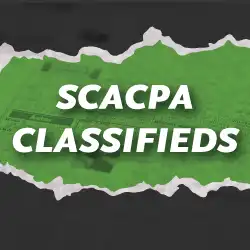Author: Jaclyn Veno, CPA
This article originally appeared in the Spring 2025 issue of the South Carolina CPA Report
In March 2025, the Professional Ethics Executive Committee (PEEC) of the AICPA issued a groundbreaking Discussion Memorandum addressing a topic of mounting significance: independence in Alternative Practice Structures (APS), particularly those involving Private Equity (PE) investment. This memorandum serves as a call to action for CPAs to provide input on how best to adapt the AICPA Code of Professional Conduct to the challenges posed by evolving APS structures. By seeking comment from the profession, the task force seeks to fortify the foundational principle of independence while reflecting the realities of modern business practices.
APSs have long been a part of the accounting profession, allowing firms to separate their attest and nonattest services into distinct legal entities. This structure has gained prominence in recent years with the rise of private equity investments. Through these arrangements, accounting firms secure access to capital, operational expertise, and resources that drive innovation, improve client services, and ensure competitiveness in an evolving marketplace.
However, the influx of PE investors raises legitimate concerns about the potential erosion of independence in audit engagements. Stakeholders have questioned whether existing standards sufficiently address the complexities introduced by PE’s influence. Ensuring that the profession remains steadfast in its commitment to the public interest and audit integrity is central to addressing these issues.
The issuance of the Discussion Memorandum stems from the recognition of significant gaps in the existing APS-related guidance, particularly regarding private equity. Current standards, established over two decades ago, largely reflect traditional APS models involving publicly traded entities. Yet, the unique characteristics of PE investments—such as significant influence or control over nonattest entities—necessitate a reevaluation of independence safeguards.
The Alternative Practice Structures Task Force of the AICPA Professional Ethics Executive Committee (PEEC) convened in 2022 with the objective of analyzing these issues comprehensively. Over the past two years, it has conducted extensive research, collaborated with industry experts, and considered input from a diverse group of stakeholders, including auditors, regulators, and professional associations. The resulting memorandum invites public comment on proposed solutions, emphasizing the importance of collective insight in shaping the future of ethical standards.
The task force’s analysis underscored that independence threats in APSs can extend far beyond the traditional boundaries of covered members. Of particular concern is if investors—whether through significant influence or controlling interest—may potentially sway strategic or budgetary decisions that ultimately impact the attest firm. The memorandum highlights the following key findings:
- Independence Threats
Relationships within an APS involving PE investors must be scrutinized under the Conceptual Framework for Independence to determine if threats to independence can be reduced to acceptable levels. - Terminology Updates
New terms, such as “investor,” “significant influence investment,” and “controlling investment,” were introduced to clarify and standardize the application of guidance across varying APS scenarios. - Network Firm Considerations
The task force affirmed that attest firms and their associated nonattest entities within an APS qualify as network firms, requiring adherence to independence rules. However, portfolio companies and other PE-affiliated entities generally do not meet the criteria for network firms.
These conclusions reflect a nuanced approach, balancing the need for rigorous independence standards with the practical realities of PE investment in APS structures.
Two Proposed Options for Addressing Independence Issues
To address these challenges, the task force has outlined two potential paths forward:
Option 1: Expanded APS Interpretation
This approach proposes issuing a new, authoritative APS-specific ethics interpretation under the Independence Rule. The expanded guidance would provide detailed requirements for handling relationships with investors, significant influence, and co-investors. By codifying APS-specific standards, Option 1 aims to enhance clarity and consistency across the profession.
Option 2: Nonauthoritative Guidance
Alternatively, the task force suggests developing nonauthoritative guidance, supplemented by illustrative examples. This option offers flexibility, allowing firms to adapt the guidance to their unique circumstances without imposing binding regulations. It emphasizes practical application while maintaining alignment with independence principles.
As the accounting profession navigates an era of unprecedented change, this Discussion Memorandum underscores the critical role of independence in maintaining public trust.
The memorandum is more than a technical discussion—it is a reflection of the profession’s commitment to integrity, transparency, and the public interest.
CPAs are encouraged to review the document in detail at aicpa-cima.com/resources/download/ethics-discussion-memo-APS, and provide their insights by the June 15, 2025, deadline to ethics-exposuredraft@aicpa.org. The collective input will play a pivotal role in ensuring that independence standards evolve to meet the demands of a changing landscape.
Independence is not merely a rule but a principle that defines the profession. By addressing the challenges posed by APSs and PE investments, the task force reaffirms this core value, ensuring that CPAs can continue to serve the public interest with unwavering integrity.


